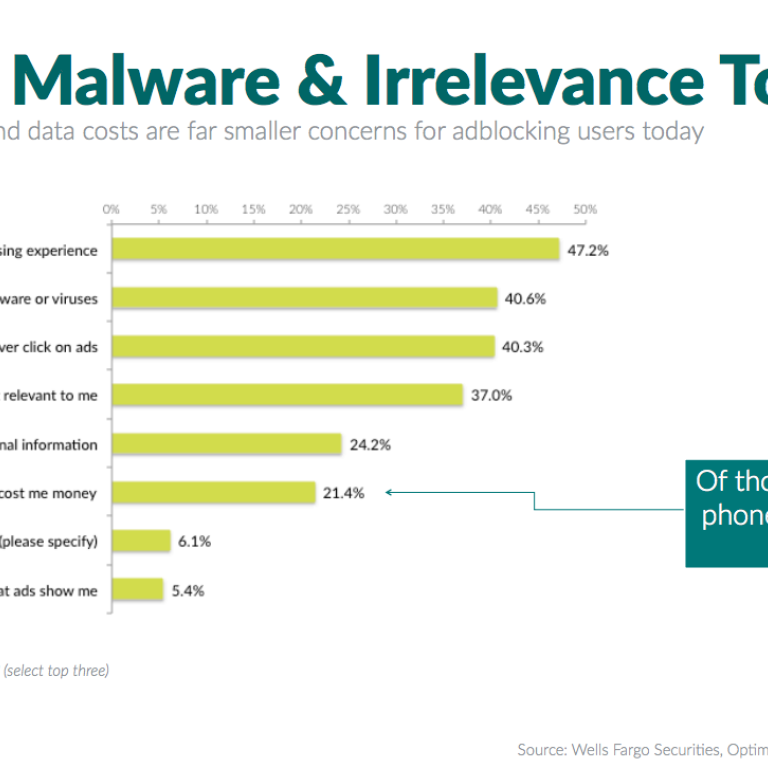
Half of people who don't use ad blockers don't already do so because they're unaware of them
Report warns ad industry may look to prevent ad blockers instead of addressing the reasons consumers seek them out in the first place
The principal reason why most people haven't yet switched on an ad blocker is simply because they are not aware they could block ads — a stat that should worry businesses that rely on online advertising to make money.
Wells Fargo Securities and Optimal.com — a startup that offers an "ethical" ad blocker — surveyed 1,712 US smartphone users to ask about their attitudes to ad blocking.
Of the 1,320 respondents who don't already block ads (either on desktop or mobile,) 45.6 per cent said they were not aware they could do so.
Optimal.com explains why this is a concern in the report's accompanying press release:
Given that ad blockers (including those of the highest quality, like uBlock Origin) are often distributed to users without charge, the increase in awareness of ad blocking will be a major adoption driver, and it is possible that publisher action to curtail content to ad blocking users might actually further increase consumer awareness of online/mobile ad blocking.
"Publisher action to curtail ad blocking" includes websites such as Forbes, GQ, and Bild preventing ad blocker users from viewing their content until they switch off ther ad blocker.
"The ad industry risks increasing adoption by focusing on preventing ad blocking instead of fixing the underlying reasons consumers are seeking out these solutions," the report states.
Of the 392 respondents who do currently block ads, almost half (47.2 per cent) said they use ad blockers because advertising slows down their browsing experience, while 40.6 per cent were worried about malware or viruses, and 40.3 per cent stated they "never click on ads."
Using its ad blocker tracking data — which analyses 40 million uniques across a range of publishers that use its ad blocker measurement tool — Optimal.com's estimates 11.7 per cent of online display ad impressions were blocked in the US in 2015. Optimal.com pegs the worldwide ad blocking rate at 14 per cent.
The company predicts more than 102 million web users in the US (36.6 per cent) will be blocking ads at least monthly by 2020, taking US$12.1 billion in potential ad revenue to publishers out of the system.
In 2016, US$3.9 billion in display ad revenue will be "lost" to ad blockers, according to Optimal.com's estimates.

